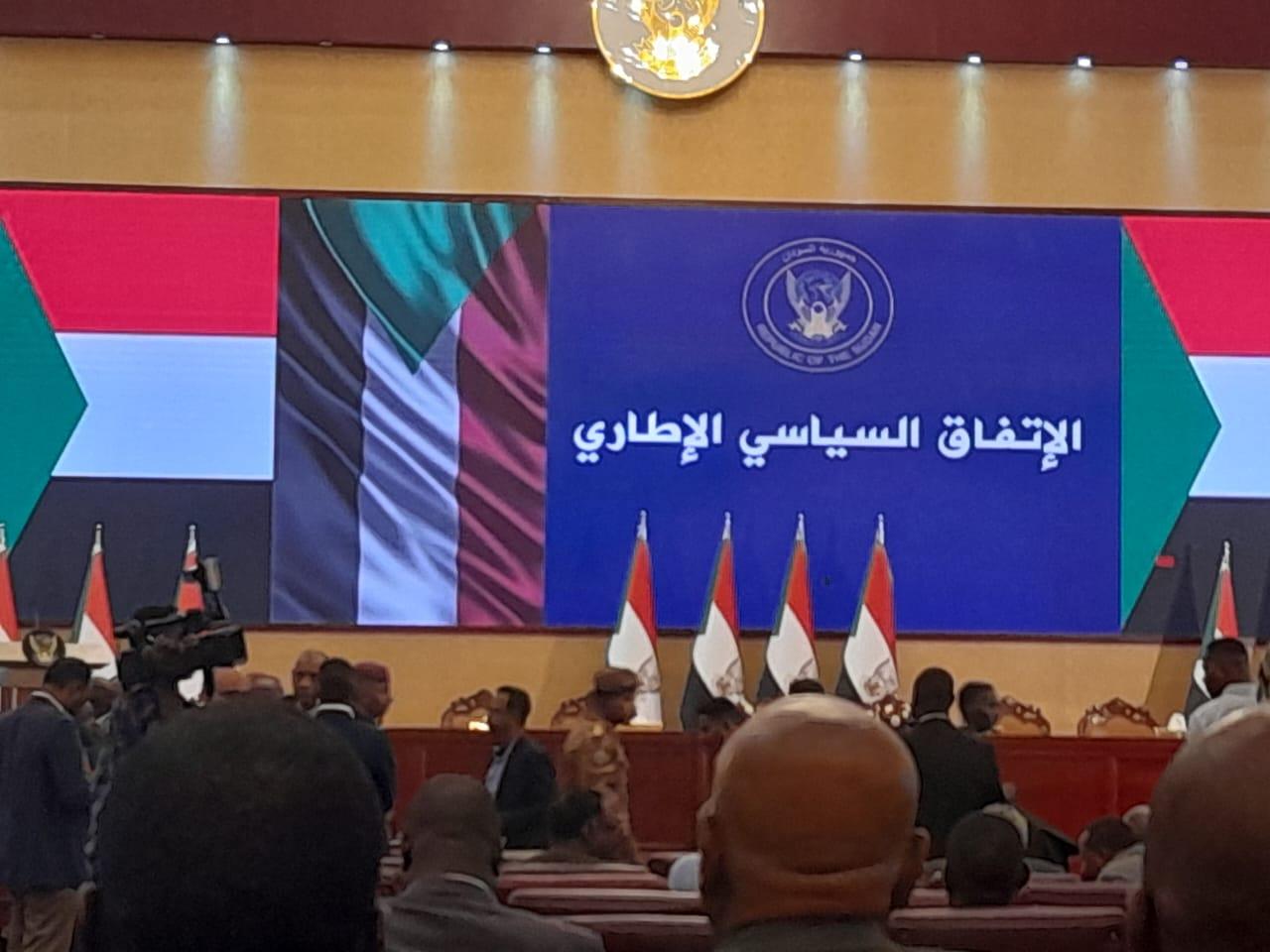Khartoum – Al-Yurae – (SUNA) – The official spokesman for the political process, Engineer Khaled Omar Youssef, announced today that he will hold a meeting at one o’clock in the afternoon on Saturday, April 1, at the Republican Palace that includes the civil and military parties signing the framework agreement and the tripartite mechanism to set a new date for signing the final political agreement, which could not be signed in its time due to the lack of consensus on some outstanding issues.
He added that all parties will continue to engage in serious discussions, in order to overcome the recent obstacles on the way to reaching an agreement that restores the path of civil democratic transformation, under which a civilian authority will be formed to lead the transition and alleviate the suffering of our people, who have never retreated from achieving their goals.
The civil and military forces involved in the political process announced today (Saturday) the first of April / April as the date for the signing of the final agreement, followed by days (6/4) the signing of the constitution, in preparation for the formation of the transitional civilian government scheduled for the eleventh of the same month.
The situation erupted after representatives of the army, police and the General Intelligence Service withdrew (Wednesday) from the security and military reform workshop organized with the aim of including its recommendations in the final political agreement, and the overall objection revolved around ignoring the issue of integrating the Rapid Support Forces into the army and not setting specific dates for this process.
This comes at a time when the spokesman for the political process, Khaled Omar Youssef, confirmed that work between the civilian and military parties is proceeding in full swing to complete discussions on some details of the final agreement issues, noting that the political process has reached its last stage, so they realize the complexity of the task entrusted to all parties.
The political settlement in Sudan, in addition to the recent differences between the army and the Rapid Support on the issues of integration and reform, faces other challenges with the accession of additional political forces to the agreement, as the Central Council of Freedom and Change Coalition rejects the accession of the Democratic Bloc alliance with all its parties to the agreement, stating that this is “flooding the political process with the facades of the former regime,” while the Justice and Equality Movement, led by Jibril Ibrahim, and the Sudan Liberation Army Movement, led by Arko Minni Minawi, insist on annexing all the entities of the coalition they lead, threatening that if Without them, “they will resort to mobilization and escalation in the face of the next government, and the country may enter into chaos and war.”
On the one hand, the Democratic Bloc Alliance announced escalation in the face of the settlement, while at the same time, the former regime and its supporters are lurking in the process and working to abort it. and take over the reins of the country through a civilian government that decides on its civil institutions.”
He predicted that “the signatories of the framework agreement will continue to strive to complete the process with new approaches with partners and try to mediate again between the military components of the army and the rapid support to save this agreement from collapse.”
According to him, “international pressure will continue on all parties, especially the military components, to find a new approach and put everyone in the line of settlement and agreement.” “Through their pressure, international axes will seek to pass their goals and interests in Sudan, in accordance with the strategies used in such situations.”


